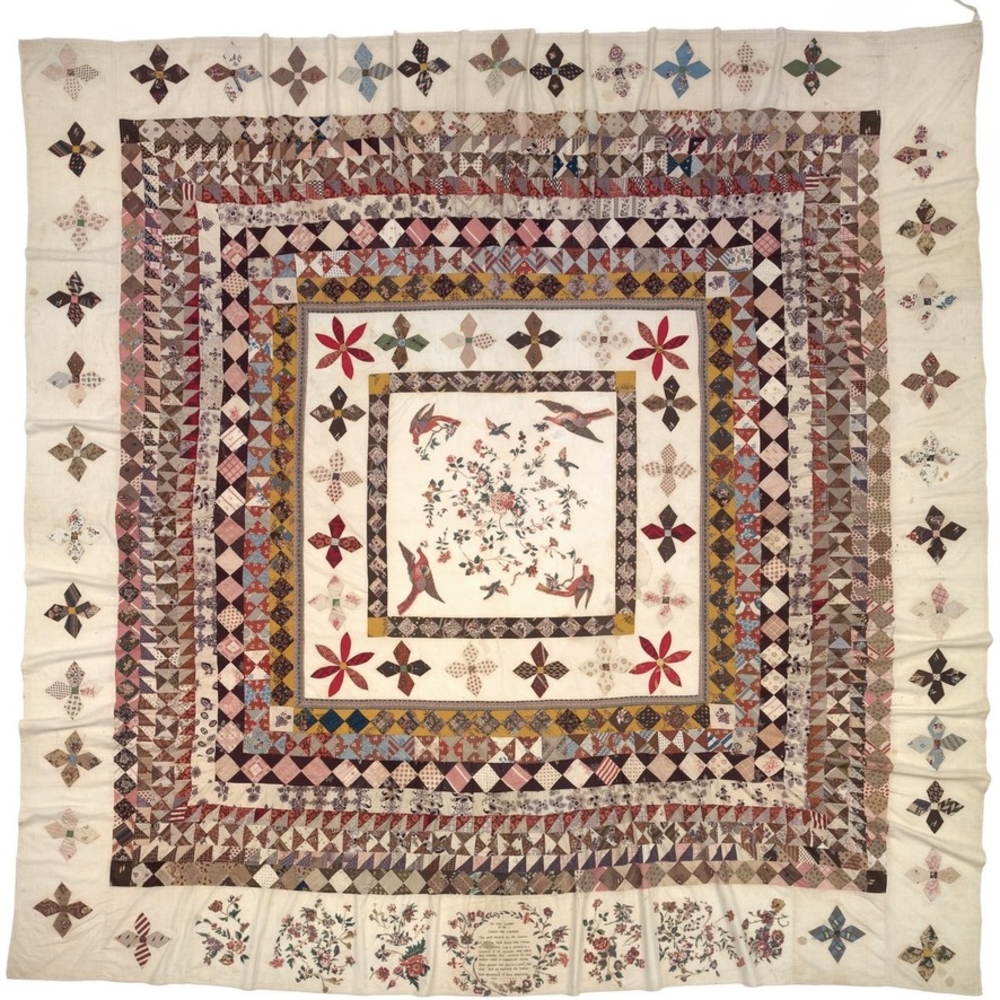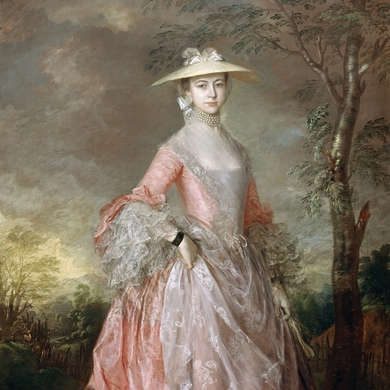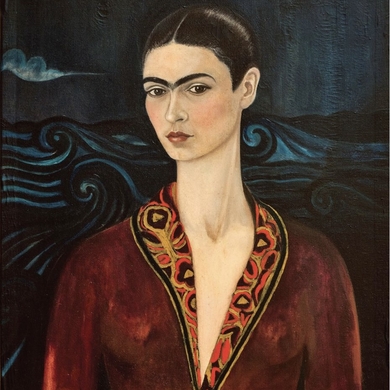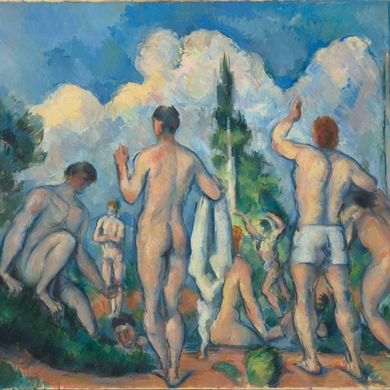While traveling by ship from Woolwich, England, to Hobart, Australia, a group of female convicts collaborated on The Rajah quilt (1841), a large work with a stitched inscription on the border. After being transported back to England, the wondrous creation was lost. Then, in 1987, it was rediscovered. It is now the NGA’s most requested work of art. During the 19th and 20th centuries, quilting was often the only permitted art form for women in the domestic sphere. The medium is still largely overlooked, though its importance grows. In this major exhibition, examples of hexagonal quilting, tumbling-block piecing, embroidery, and appliqué provide a glorious glimpse into the lives of our female ancestors. The Rajah quilt is on view too. —Elena Clavarino
Arts Intel Report
A Century of Quilts

An 1841 quilt by the women of the HMS Rajah convict ship.
When
Mar 16 – Aug 25, 2024
Where
Etc
Photo: Kezia Hayter/National Gallery of Australia, Kamberri/Canberra, gift of Les Hollings and the Australian Textiles Fund, 1989



